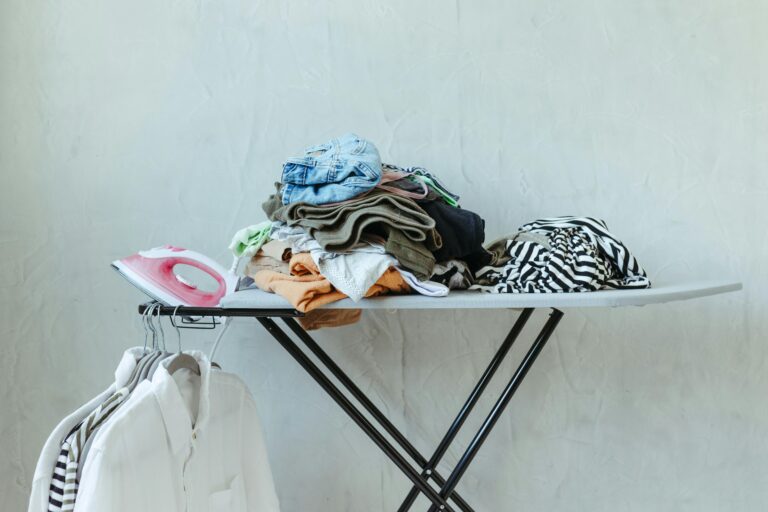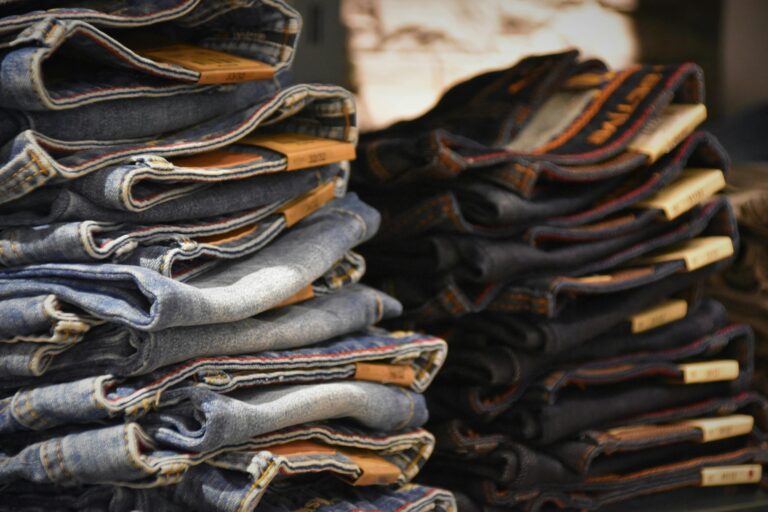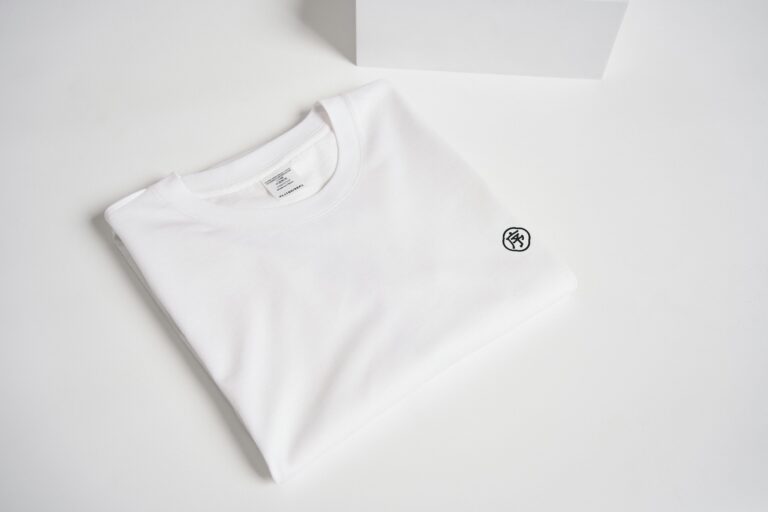In today’s world, the importance of choosing a non toxic fabric softener can’t be overstated. Traditional fabric softeners are often laden with harmful chemicals, leading to skin irritation, respiratory problems, and in some cases, serious health risks such as hormonal imbalances and even cancer1. By opting for non toxic alternatives, you’re not just protecting your family’s health; you’re also contributing to eco-friendly laundry care practices that benefit the planet2. Furthermore, natural fabric softeners, which can be easily made at home using simple ingredients, tend to be budget-friendly and biodegradable1. This shift towards safer, more sustainable choices ensures that your laundry routine aligns with a conscientious lifestyle, safeguarding both your loved ones and the environment.
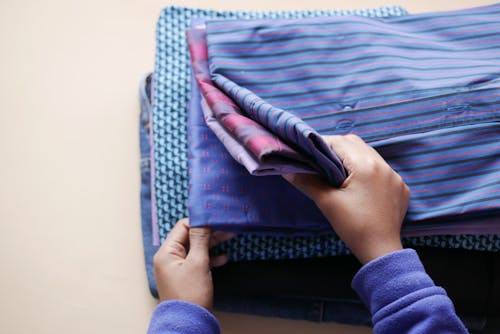
What is a Non Toxic Fabric Softener?
A non toxic fabric softener is an alternative to traditional fabric softeners that relies on natural ingredients rather than harmful chemicals. These products are designed without synthetic fragrances and petroleum-based compounds while providing the softening effects that many consumers desire. The non toxic fabric softener definition emphasizes that these options are biodegradable and gentle on sensitive skin.
Many traditional fabric softeners contain over 50 synthetic fragrance chemicals, which can aggravate asthma and lead to skin irritation. For example, common allergens like linalool and hexyl cinnamal are often found in these products, contributing to respiratory issues among users. This is particularly concerning as approximately 64.3% of asthmatics have reported adverse health effects from fragranced products, highlighting the significant health risks associated with conventional options3.
On the other hand, eco-friendly laundry products such as natural fabric softeners utilize ingredients like vinegar, baking soda, and glycerin, which are safer alternatives. The move towards using natural options is not only about softening garments but also about prioritizing personal health and environmental sustainability4.
Overall, understanding the differences in these fabric softeners is essential for making informed choices that enhance both laundry results and personal well-being. The growing popularity of non toxic fabric softeners reflects a wider trend towards safer and more eco-friendly living5.
Why Choose Non Toxic Fabric Softener?
Switching to non toxic fabric softeners provides a variety of advantages that align with health-conscious laundry solutions. Traditional fabric softeners often contain toxic chemicals like benzyl acetate and limonene, which can cause skin irritation and even respiratory issues such as asthma6. By using non toxic alternatives, individuals can significantly reduce these health risks while still achieving soft and fresh laundry.
Another critical benefit of non toxic fabric softener is its environmental impact. Many synthetic fabric softeners are made from petroleum-based materials that do not biodegrade easily, contributing to pollution and harming aquatic life6. In contrast, natural substitutes, such as wool dryer balls and distilled white vinegar, serve as effective options that not only soften laundry but also help maintain fabric longevity without causing harm to the environment7.
Choosing non toxic fabric softeners can also be cost-effective. Many homemade solutions utilize commonplace household ingredients, allowing individuals to save money while ensuring the safety of their families7. Embracing these health-conscious laundry solutions creates a win-win situation for both personal health and environmental wellness.
Popular Brands of Non Toxic Fabric Softener
The market is filled with several best non toxic fabric softener brands that cater to environmentally conscious consumers. Method is a notable brand, offering plant-based liquid softeners and dryer sheets in an array of delightful scents. Their commitment to sustainability is evident in their packaging and ingredient sourcing.
Another popular choice is Mrs. Meyer’s Clean Day, known for their elegant scents and effective formulations. They prioritize plant-derived ingredients, which contributes to their reputation as one of the top eco-friendly fabric softeners. Seventh Generation also stands out, providing a variety of fabric softening sheets made from 97% plant-based ingredients, priced between $7 and $234.
Ecover offers fabric softeners containing biodegradable components, focusing heavily on eco-friendly practices. Dropps fabric softener pods are another excellent option, with prices starting at $19, crafted from natural materials that are 100% free of toxic or synthetic chemicals4.
Molly’s Suds features a range of natural fabric softeners, including sheets and dryer balls, with prices ranging from $12 to $174. Attitude emphasizes hypoallergenic formulas, ideal for sensitive skin, while ensuring that their products are cruelty-free.
Public Goods offers phthalate-free fabric softener sheets at just $7 for a pack of 80, made entirely from plant-based ingredients4. Each of these brands showcases a dedication to providing safe and sustainable options, making it easier for consumers to choose top eco-friendly fabric softeners without worry.
Ingredients to Avoid in Fabric Softeners
Understanding the harmful ingredients in fabric softeners is essential for maintaining a safe and healthy laundry routine. Commonly found toxic components include quaternary ammonium compounds, referred to as quats. These can trigger asthma and may even pose risks to the reproductive system8. Additionally, fragrance mixes often lead to allergies, skin irritations, and respiratory distress8. Nearly 4,000 fragrance ingredients exist in household products, complicating efforts for toxic chemical awareness8.
Preservatives like methylisothiazolinone and glutaral are infamous for causing skin allergies and triggering asthma, while glutaraldehyde also poses a threat to aquatic life8. Harmful chemical awareness extends to synthetic colorants such as D&C violet 2, which have been linked to cancer8. Many individuals are now seeking safer alternatives due to awareness of these hazards, leading to a significant drop in fabric softener sales by 15% from 2015 to 20179.
Furthermore, other dangerous ingredients like benzyl acetate and ethanol contribute to serious health issues, including respiratory irritation and central nervous system disorders10. As more consumers recognize the risks associated with traditional fabric softeners, the demand for non-toxic options continues to grow, reflecting a shift towards safer laundry practices9.
How to Choose the Right Non Toxic Fabric Softener
When selecting non toxic fabric softener, it’s essential to consider your specific needs, especially if you or family members have sensitive skin. About 40% of adults report having sensitive skin, representing a significant increase over recent decades11. To ensure you’re making a safe choice, look for products that are free from harmful ingredients like Quaternary Ammonium Compounds and Phthalates, which are commonly found in traditional fabric softeners11.
It is vital to pay attention to ingredient transparency. Check for certifications that indicate a product’s safety and environmental impact. Many brands now offer options that are not only effective but are manufactured with eco-friendly practices in mind. In fact, the global fabric softeners market was valued at approximately $15.7 billion in 2020 and is projected to grow to $19.7 billion by 202612, demonstrating a rising awareness and demand for safer alternatives.
Consider your preferences related to scents as well. Fragrances found in commercial softeners can sometimes trigger health issues, such as asthma or skin irritation5. If you prefer natural alternatives, vinegar mixed with essential oils serves as an excellent fabric softener, and you can easily make it at home5. Exploring best practices for laundry will also help you maximize the effectiveness of your chosen fabric softener, ensuring your clothes remain soft while being safe for you and the environment.
DIY Non Toxic Fabric Softener Recipes
If you’re looking for an eco-friendly solution for laundry, making a homemade non toxic fabric softener can be a fun and rewarding activity. A simple recipe involves using common ingredients like vinegar, salt, and essential oils. Start by combining 1/2 cup fine salt with 1 cup of hot water to help dissolve the salt. Once that’s mixed, add 3 cups of white vinegar along with 2-3 drops of your favorite essential oil, such as lemon or eucalyptus for a refreshing scent. Distilled, purified, or pre-boiled and cooled water is recommended for this recipe to ensure the best results.
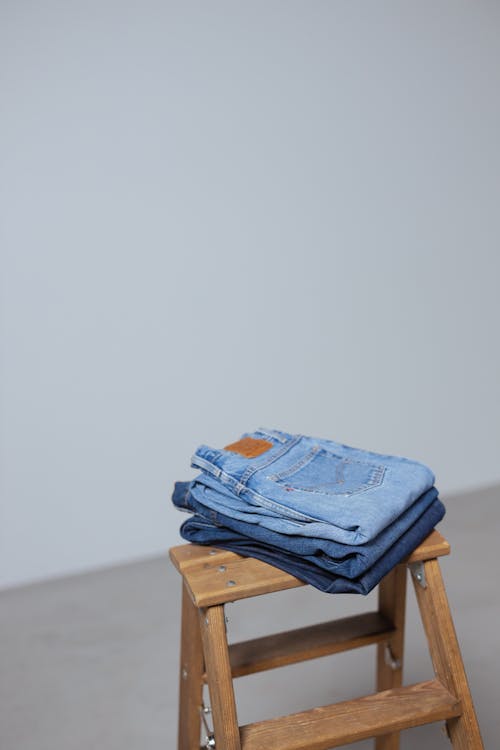
After mixing, transfer the solution to a bottle for easy use. Pour about 1/2 cup into the washing machine’s fabric softener compartment during each load. This method takes less than 5 minutes to prepare and provides a natural alternative to commercial softeners which often contain ingredients like quaternized triethanolamine diester and fragrances that can be harmful to health13. Using homemade non toxic fabric softener allows you to control what goes into your laundry, aligning perfectly with your commitment to natural laundry options.
For those who want to customize their scent throughout the year, you can adapt the essential oils according to the seasons. For example, consider using wild orange and grapefruit in the summer or peppermint during winter. On average, about 1/4 to 1/2 cup of this homemade solution per laundry load will provide optimal softness and freshness14.
Best Practices for Using Fabric Softeners
To achieve the effective use of fabric softeners, following specific practices can improve results. Always measure the fabric softener according to the manufacturer’s instructions. Overuse can lead to buildup in washing machines and a lesser quality of fabric softness1516. It is crucial to add fabric softener during the rinse cycle. This timing ensures that it does not get washed away during the initial wash cycle, allowing fabrics to absorb its benefits17.
When using liquid fabric softeners, dilute with water before adding them directly into the washer drum to prevent staining and ensure even distribution17. Some fabrics, like workout clothes and towels, should not use softeners at all to maintain their unique properties and effectiveness17. Following the device manufacturer’s instructions regarding the fabric softener compartment, especially in HE machines, will also enhance performance16.
Experimenting with natural alternatives like white vinegar or wool dryer balls can yield softer laundry without the potential drawbacks of commercial softeners15. Implementing these laundry tips will not only enhance fabric quality but also prolong the lifespan of your washing machine.
Cost Comparison: Non Toxic vs. Traditional Fabric Softeners
The pricing of non toxic fabric softeners can vary significantly, yet they often provide a cost-effectiveness in laundry care that many consumers overlook. For example, brands like 365 Organic Laundry Detergent have a cost of $24.99 for 133 HE loads, translating to approximately $0.19-0.25 per load18. In contrast, traditional fabric softeners tend to be lower in upfront costs but may lead to additional expenses, as many contain harmful chemicals that can cause respiratory issues and skin irritations19. These long-term health considerations and the environmental impact of traditional products cannot be ignored.
Another factor to consider is that natural alternatives, like Mrs. Meyer’s Clean Day, are made from plant-derived ingredients and don’t contribute to toxic waste like their traditional counterparts19. While the initial pricing for non toxic options may seem higher, products such as Puracy, available at $20 and made from over 99% natural ingredients, show that affordability can still be paired with safety20. Calculating potential savings from reduced allergy-related medical costs further favors the non toxic approach, promoting not just cleaner clothes but a healthier home environment.
Overall, it’s clear that while there may be a discrepancy in the immediate pricing of non toxic fabric softeners compared to traditional ones, the comprehensive benefits—including fabric longevity and health safety—highlight the superior cost-effectiveness in laundry care1819.
Eco-Friendly Packaging Options
The shift towards eco-friendly packaging options plays a crucial role in sustainable packaging for fabric softeners. Many brands are adopting biodegradable containers and refillable bottles to minimize their environmental impact. For instance, some eco-friendly fabric softeners are packaged in containers made from 100% post-consumer recycled plastic, contributing to reducing environmental footprint21. Refillable systems are gaining popularity, with brands like Miniml offering refillable pouches that encourage a zero-waste lifestyle22.
Traditional fabric softeners are often packaged in single-use plastic bottles, creating significant waste that harms our planet23. In contrast, brands that prioritize sustainability not only provide non-toxic alternatives but also use innovative packaging solutions that help consumers make more environmentally conscious choices. The rise of plant-based fabric softeners packaged in eco-friendly ways allows consumers to enjoy the benefits of soft fabrics while ensuring their choices are aligned with environmental stewardship21.
As the market for eco-friendly options grows, it becomes increasingly vital for consumers to identify and select brands that demonstrate a commitment to sustainable practices. By choosing products with sustainable packaging for fabric softeners, individuals can contribute to reducing environmental footprint on a broader scale23.
Customer Favorites: Top Rated Non Toxic Fabric Softeners
When selecting highly rated non toxic fabric softeners, customer reviews reveal a range of impressive options that cater to various preferences and budgets. For instance, Downy Liquid Fabric Conditioner is recognized as the Best Budget fabric softener due to its affordability and availability, priced at $9 at Target and $14 at Walmart2425. DedCool Dryer Sheets have gained acclaim as the Best Overall fabric softener in 2024, offering long-lasting fragrance that lingers on clothes for 3 to 4 days25.
Another popular choice among consumers is the Brooklinen Fabric Softener, praised for its clean formula that provides unparalleled softness without leaving residue on garments25. Those seeking unique scents may be drawn to the Laundry Sauce “Egyptian Rose” Fabric Softener, recently awarded the title of Best Sweet fabric softener thanks to its potent fragrance25.
In terms of value, Downy Free and Gentle Fabric Softener, priced at $8 at Walmart, stands out for its hypoallergenic properties, making it a favorite for sensitive skin24. Finally, for premium options, Maison Francis Kurkdjian Aqua Universalis Fabric Softener is celebrated as the Best Luxe softener, catering to those wanting a lavish laundry experience25.
These highly rated non toxic fabric softeners exemplify the diverse choices available, each supported by positive customer reviews that highlight their distinct features and benefits.
Frequently Asked Questions About Non Toxic Fabric Softeners
Many consumers have common queries about non toxic fabric softeners, especially regarding their effectiveness. Research shows that certain chemicals in traditional fabric softeners, such as QUATS, are linked to respiratory issues, affecting one in every ten children in America with asthma26. Switching to non toxic alternatives can help alleviate such concerns while still providing soft, fresh laundry.
Another frequently asked question revolves around compatibility with various fabrics. Non toxic fabric softeners are typically safe for a wide range of materials, making them a versatile choice for everyday laundry27. Users may wonder if these products can effectively combat static cling. Luckily, natural alternatives like wool dryer balls can be quite effective in eliminating static, while also cutting drying time by 8-10 minutes26.
Curious users often ask about homemade options as well. Vinegar serves as an excellent alternative to commercial softeners, offering benefits like odor removal, fabric softening, and even brightening laundry loads26. These alternatives address various FAQs and dispel myths about non toxic fabric softeners and their utility in modern laundry routines.
Final Thoughts on Non Toxic Fabric Softeners
Making the switch to non toxic fabric softeners is not just a personal choice but a significant stride towards healthier living and environmental sustainability. A summary of non toxic fabric softeners reveals that many leading brands, such as Mrs. Meyer’s and Attitude, prioritize ethical practices and ingredient safety, enhancing your laundry routine without harmful effects on your family or the planet28. These products are designed to soften fabrics while reducing static cling and enhancing scent, all without the use of harsh chemicals that can irritate the skin or respiratory system29.
Furthermore, embracing eco-friendly laundry solutions is easier than ever, with a variety of options available, including products like Ecover’s green softener and DIY alternatives like vinegar and essential oils28. Opting for brands that utilize cold-processing manufacturing methods can also lead to significant reductions in energy consumption, reflecting a commitment to sustainability that today’s consumers care about28. These alternatives not only help in promoting a cleaner environment but also support your family’s health.
Transitioning to non toxic fabric softeners opens the door to a better laundry experience that is safe, sustainable, and supportive of our ecosystem. By staying informed and making intentional choices, you can contribute to a healthier home and a greener planet, ensuring that your laundry routine aligns with your values and the well-being of future generations.
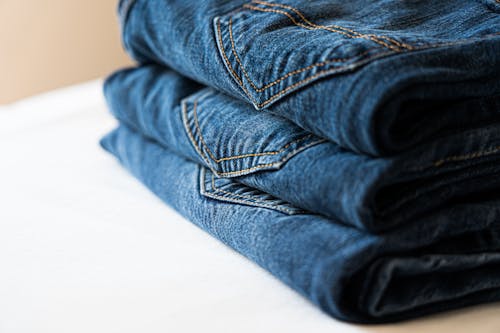
FAQ
What is a non toxic fabric softener?
A non toxic fabric softener is a safe, eco-friendly alternative to traditional fabric softeners that uses natural ingredients without harmful chemicals. These products avoid synthetic fragrances and petroleum-based compounds, making them gentle on sensitive skin while providing similar softening benefits.
Why should I switch to non toxic fabric softeners?
Choosing a non toxic fabric softener helps avoid skin irritation, respiratory problems, and hormonal imbalances that can be associated with traditional options. Additionally, these alternatives are better for the environment, as they minimize pollution and are biodegradable.
Do non toxic fabric softeners effectively soften my laundry?
Yes! Non toxic fabric softeners are designed to provide the same softening benefits as traditional softeners, but without harmful chemicals. Many brands also offer various scent options to choose from, ensuring you don’t have to sacrifice freshness.
Can I use non toxic fabric softeners on all types of fabrics?
Most non toxic fabric softeners are safe for a variety of fabrics, but it’s always best to check the product label for specific care instructions. Some sensitive or specialty fabrics may have unique requirements.
How do I choose the right non toxic fabric softener for my needs?
When selecting a non toxic fabric softener, consider your skin sensitivity, scent preferences, and any specific fabric care requirements. Look for ingredients transparency and certifications that ensure product safety, like EWG verification or cruelty-free status.
Are there any harmful ingredients I should watch out for?
Yes, common toxic ingredients in conventional fabric softeners include quats, artificial fragrances, and formaldehyde. It’s important to read labels carefully and avoid products containing these harmful substances.
Can I make my own non toxic fabric softener?
Absolutely! You can create DIY non toxic fabric softeners using common household ingredients like vinegar, baking soda, and essential oils. There are many easy recipes available that provide flexibility to customize scents and benefits according to your preferences.
How should I use non toxic fabric softeners in my laundry?
For best results, follow the manufacturer’s instructions on proper measuring and usage. To avoid overuse, be mindful of how much you’re adding and when to add it during the wash cycle for optimum softening effects.
Are non toxic fabric softeners more expensive than traditional ones?
While some non toxic fabric softeners can be pricier, the potential savings from homemade versions and the long-term benefits, like fabric longevity and reduced allergy-related costs, often make them more economical in the long run.
What eco-friendly packaging options are available for non toxic fabric softeners?
Many leading non toxic fabric softener brands are committed to sustainability by using biodegradable containers and refillable bottles. This helps consumers minimize their ecological footprint further when purchasing laundry products.
What are some customer favorites among non toxic fabric softeners?
Popular non toxic fabric softeners often receive high ratings based on user experiences. Brands like Method, Mrs. Meyer’s Clean Day, and Ecover are praised for their effectiveness, pleasant scents, and commitment to eco-friendliness.

